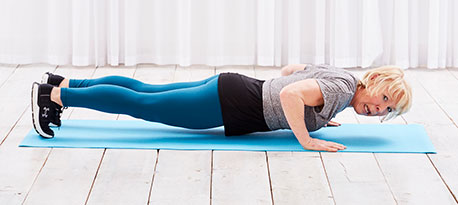“Worse for what?’ I asked when the team at Woman asked me to tackle this topic. “Health?” I asked “Or fat stores?”. Both, came the reply. Right here goes and I’m going to use the word diet, which I loathe. It smacks of temporary, restrictive and painful, but let’s say we have two diets: the first is LOW FAT. That means lots of veg and fruit and high carbohydrate foods but not a lot else. No butter, cheese, eggs, olive oil. You’d never feel full, you’d snack all the time (sugar does that to you) and your meals would taste uninteresting. You’d probably put on a lot of weight too not only from the snacking but because when you consume high quantities of carbohydrate (and you’re not exercising to use it up), the hormone insulin converts it to glucose and any spare gets packed off to the fat cells for safe keeping.
Our second diet is LOW SUGAR. That means low in carbohydrate and sweet stuff. So no oats, potatoes, pasta, fruit, minimum vegetables (they’re carbohydrate), no tv chocolate snacks but lots of meat, cheese, butter (nothing to put it on though). We’re talking Atkins. You’d be constipated, lethargic, and have terrible bad breath. You’d probably lose weight but you’d cave in after a week and you’d be foul to live with. Plus your saturated fat levels would be through the roof (the recommended daily amount for women is currently 20g per day – that’s about 100g of steak and 10g of butter).
Both of these ‘diets’ are not recommended because they’re not sustainable and far too restrictive. We need sugar but preferably in the form of slow-release nutrient dense carbohydrate (like oats or rice) for health and for energy rather than choccy digestives which ain’t going to keep our arteries clear of plaque nor turn us into gorgeous goddesses. It’s free sugars we need to watch (see tip below). Likewise, fat is essential in our diet so we can better absorb vitamins A, D and E. Opt for omega 3 fatty acids which we have to get from our diet as the body can’t make it. That means oily fish, flax seeds, walnuts to be very specific.
Moderation is the key in all things, including that daily chocolate fix. But also the hard part. Sticking to one is the issue.
P.S ‘Free sugar’ is any sugar which is added to a food or drink or the sugar that is already in honey, syrup or fruit juice. The nhs recommends 5g max per day. For both health, energy and half an eye on your waistline, eat 2-3 portions of fruit per day, plentiful veg of all colours and lots of protein, some of which will top up your fat intake, like seeds, nuts, meat and oily fish. For your daily carbohydrate (which will convert to energy-giving sugar) keep to 1-2 portions per day of oats, rice, potatoes, bread, pasta and other grains rather than relying on those buckets of mini flapjacks. Delicious now and then but not as a daily staple.



